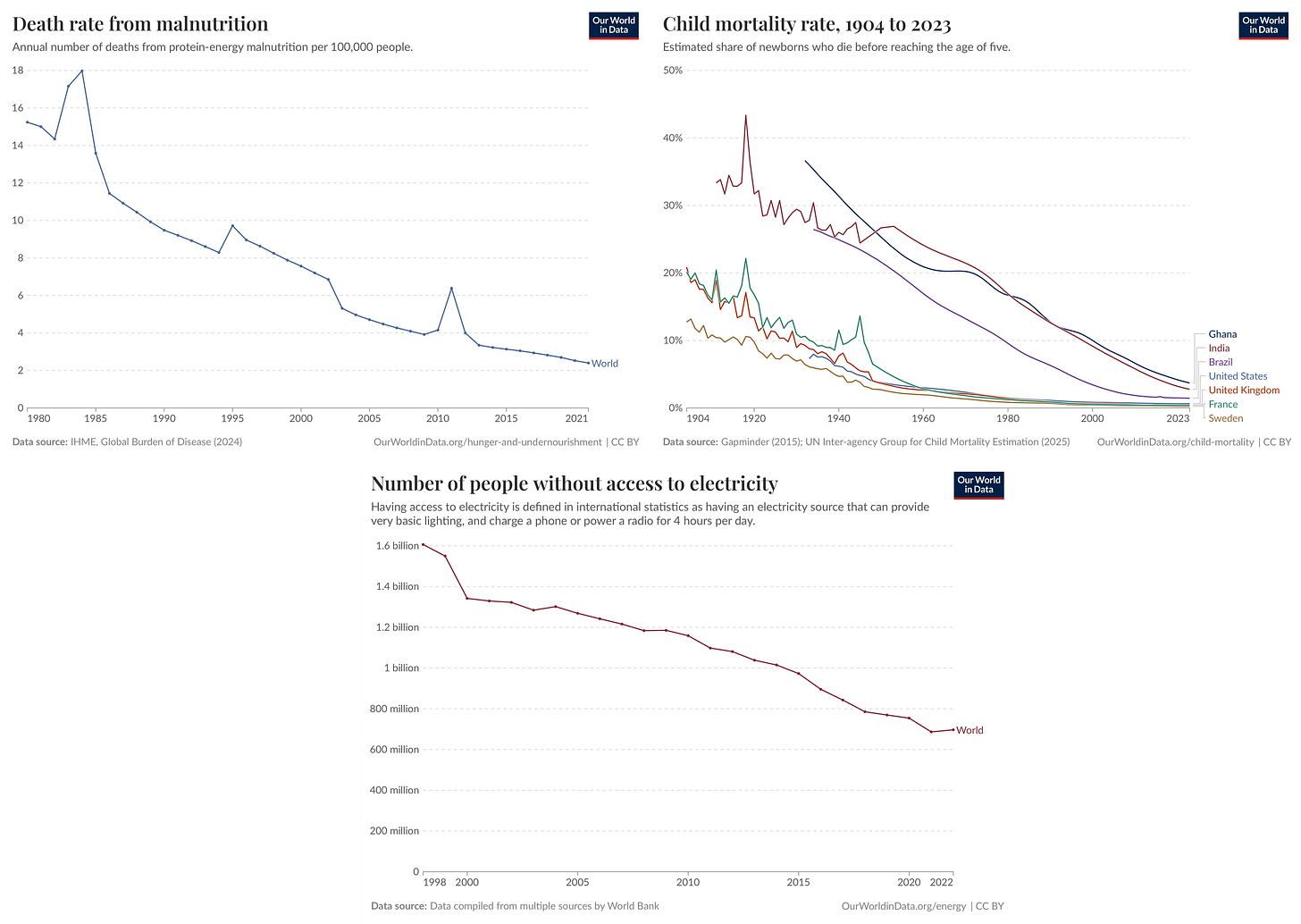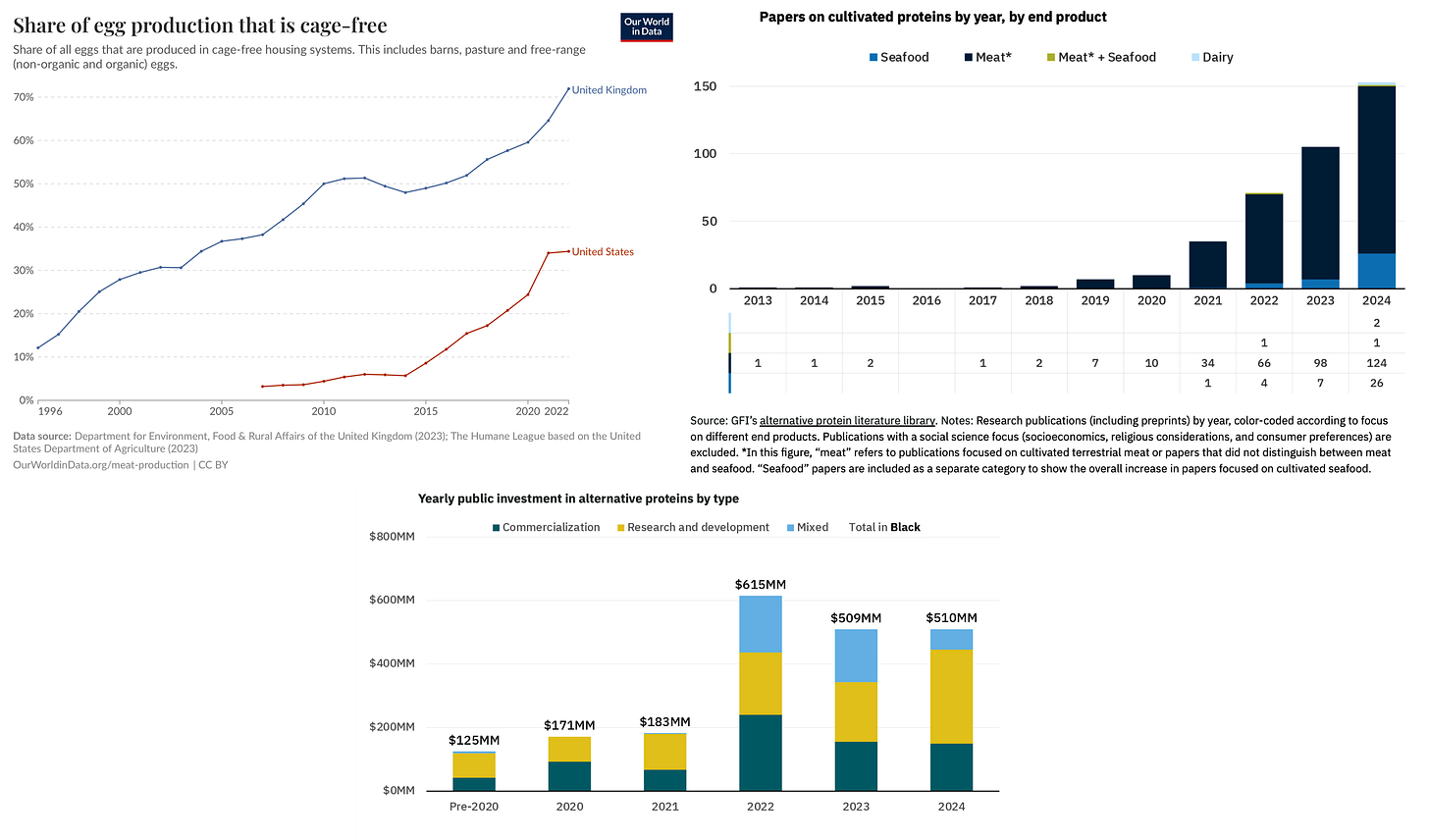[I am relatively new to this forum. I recently published this post on my substack inspired by the progress studies mindset. I hope some of you can resonate with this.]
Ever since broadening my views on how to help animals, I've been learning about more movements and ideas that may provide new insights for animal welfare. I believe progress studies is one such movement.

The Progress Studies Framework for Animal Welfare
While lot of progress studies ideas are great, I don't completely agree with the progress studies movement on everything, notably its exclusive focus on human well-being. However, I believe some of its insights can be applied to improving farm animal advocacy, welfare, and rights. Humans have a collective demonstrated ability to problem solve ourselves out of crises, even if self-inflicted, and I believe we can do the same for farm animals.
Solutions like diet changes that make progress for farm animals but result in a reduction of choices for people may seem like a step backward from a progress studies perspective (until alternatives are available). However, in the long run, this may yet be considered social progress, similar to how we view moral victories in history.
Here are some ways we can apply the progress studies mindset to animal welfare:
1. Celebrating progress for animals - We need to continue to share wins and celebrate meaningful improvements that have the potential to help animals, this helps maintain motivation and demonstrate that positive change is possible (see graphs below).
2. Progress for animals isn't inevitable - It requires deliberate action through advocacy, entrepreneurship, donations, innovation and effective institutions.
3. Problem solving for animals - This means trying different approaches and pursuing what works. Being philosophically correct is cool but more importantly let’s make sure that our ideas actually translate to impact.
4. Creating virtuous cycles - Better alternatives to animal-products create a flywheel effect of increased competition & innovation, reduced costs, increased adoption and more investment in the industry. Social initiatives like Veganuary and Meatless Mondays help shift cultural norms, making plant-based diets more accessible. Each step forward in animal welfare builds momentum for bolder reforms, expanding both protections and rights for animals.
5. Problem-solving over pessimism - A progress focused mindset can help paint a more actionable and optimistic picture of the work needed to improve conditions for farmed animals, instead of fostering pessimism towards the current crisis or developing a misanthropic view of the world.

Thanks for reading! Check out Feeding Progress for more posts on progress and animal welfare.
PS: An example of technological progress that go beyond advocacy for personal abstinence or creating better alternatives is in-ovo sexing. This technology can prevent up to 7 billion [1] macerations of baby chicks, every year. Here’s an excellent article about this (and more) from Asimov Press.
I also recommend checking out the Robert’s substack for more ideas on progress studies and animal welfare.
